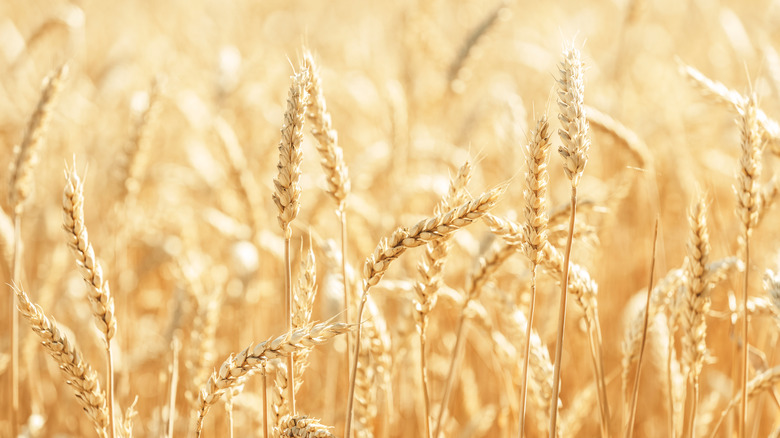Why Russia May Further Restrict Ukrainian Wheat Exports
Ever since Russia's initial invasion of Ukraine last February, the world's grain supply has been deeply affected. According to World's Top Exports, Russia and Ukraine are both in the top five of global wheat exporters, with their combined exports accounting for approximately 20% of the global supply. CBS News reported in May 2022 that this has put many nations, including Egypt, Jordan, and Yemen, in dire straits as they struggle to find new sources of this widely-used crop.
One of the most frustrating aspects of this wheat shortage is that much of the Ukrainian grain harvest is sitting in warehouses and silos, but unable to leave the country. It's estimated that Ukrainian wheat exports for the year were reduced by 46% because of the conflict. It has even begun to affect the harvest of this year's crop, as farmers have no room to store incoming grains.
However, thanks to an intervention by the United Nations and cooperation from Turkey, the two countries were able to form a trade agreement in late July that has allowed shipments of Ukrainian grain to safely leave the country through its Black Sea ports. This grain agreement seemed to be under threat just as quickly, though, and is once again a target of Vladimir Putin's ire.
Putin says developing nations are being cheated
This week, Reuters reported that Russian president Vladimir Putin is now threatening to alter the grain shipping deal. The leader claims that developing nations have not been receiving their fair share of wheat exports. He accused Western powers instead of profiting from the trade deal and alleges that only two of the 87 shipments that have left Ukraine were destined for nations who were the most in need.
According to Reuters this once again caused wheat commodity prices to jump to their highest point since safe trade seemed possible. CNN Business shows that wheat futures saw a 3% increase in response to Putin's threats to the trade deal. This put the price of the crop at a two-month high, at $8.45 per bushel.
Arlan Suderman, StoneX's chief commodities economist, told Reuters that he believes this threat from Putin is due to the fact that the Russian harvest recently saw a highly successful season come to a close. Now that Ukraine stands to profit from this deal, Russia has less of a motivation to play nice. There may be other inconveniences on the horizon as well — The New York Times notes that Putin recently began threatening to remove Russian oil resources from European powers.

